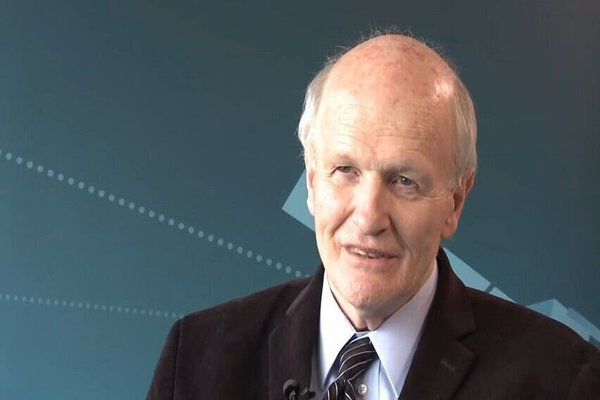Opponents strong enough to delay JCPOA revival but not to stop it, says ex-WH official

TEHRAN - Former assistant director for national security in the White House Office of Science and Technology believes that opponents of restoring the nuclear deal are strong enough to delay it “but not to stop it”.
"They were strong enough to delay the Biden Administration's move but not to stop it," Professor Frank N. von Hippel tells the Tehran Times.
Iran is negotiating with the five powers that remain in the agreement - France, Germany, Britain, Russia, and China - in Vienna to revitalize the pact.
An American delegation is also in Vienna but not talking directly to Iran.
Iran's Deputy Foreign Minister Abbas Araqchi, who leads Iran’s negotiating team in Vienna, has said the talks have entered a new phase.
Iran had proposed draft agreements that could be a basis for negotiations, he has said.
Many pundits and politicians inside America criticize President Biden's hesitation in taking the first step to revitalize the Joint Comprehensive Plan of Action (JCPOA), the official name for the 2015 nuclear deal.
Outside America, the nuclear deal has its opponents like Israel and Saudi Arabia.
In recent weeks Israel has started secret vicious moves against Iran, especially its sabotage operation in Iran's nuclear facility in Natanz, in order to derail the revitalization of the JCPOA.
“The leaders of Israel, Saudi Arabia, and the UAE are all against the JCPOA," von Hippel notes. "They have been trying to get the U.S. into a war with Iran, and I think the Trump Administration could have ended up in a war with Iran had President Trump been reelected."
Following is the text of the interview:
Q: How do you see the fate of talks to restore the JCPOA? Are you optimistic?
The negotiators on both sides are optimistic, and Israel's intelligence agency reportedly warned Israel's security cabinet that an agreement would happen. Such reports make me optimistic too.
Q: Despite the U.S. unilateral withdrawal from the JCPOA in 2018, and reimposition of sanctions on Iran, the Biden administration seems hesitant to take the first step to revive the agreement. Why?
A: The Biden Administration inherited many disasters from the Trump Administration and, because of the almost even division of Congress and opposition to the JCPOA from some important Democrats in Congress, decided to delay reentering the JCPOA until it had some domestic policy victories first.
Q: Do you think that opponents of the Iran nuclear deal inside the U.S., including Republicans and some Democrats and certain lobbies, are strong enough to dictate their will on Biden’s White House?
A: They were strong enough to delay the Biden Administration's move but not to stop it.
Q: How do you see the role of some regional players in divergence between Iran and the U.S. while they have common interests in West Asia?
The leaders of Israel, Saudi Arabia and the UAE are all against the JCPOA. They have been trying to get the U.S. into a war with Iran and I think the Trump Administration could have ended up in a war with Iran had President Trump been reelected. But Biden is not interested in another Middle East (West Asia) war. Indeed, in his speech about ending U.S. ground involvement in the civil war inside Afghanistan, he made clear that he sees China as the pre-eminent global challenge to the U.S. I am concerned about the developing Cold War between the U.S. and China and I worry that Taiwan could become a nuclear flashpoint in that war as West Berlin almost was in the Cold War with the Soviet Union.)
Q: Do you think Israel's sabotage operations can stop Iran's nuclear progress?
A: Israel cannot stop Iran's nuclear program by sabotage, but it has succeeded in provoking Iran to make that program look more threatening, which raises the risk of war between the U.S. and Iran. I will be very relieved when both sides return to the JCPOA. I hope Iran will be willing to negotiate a longer-term agreement. I worry that Saudi Arabia, Turkey and Egypt will all launch their own enrichment programs. Far better would be a regional enrichment program under multinational control that threatens no one. That was the solution arrived at in Europe after World War II. URENCO is jointly controlled by Germany, the Netherlands and the United Kingdom and France and URENCO has a joint company to make the centrifuges used in Europe and the United States.
Leave a Comment